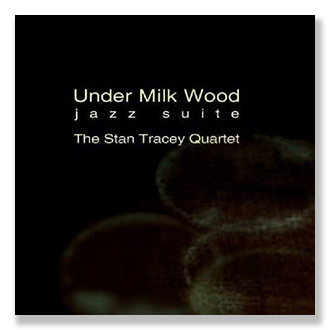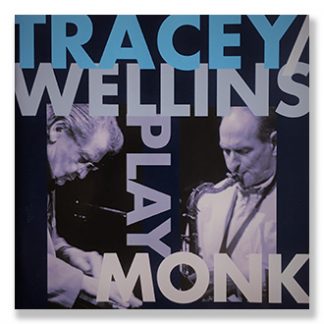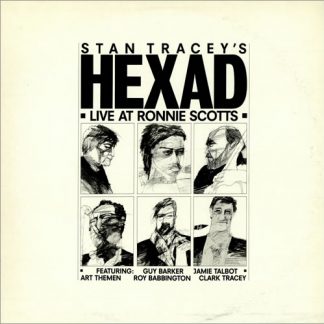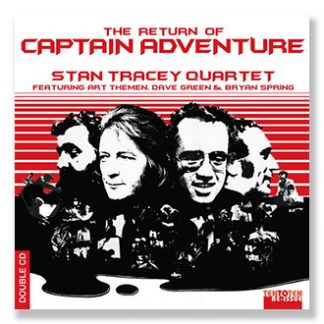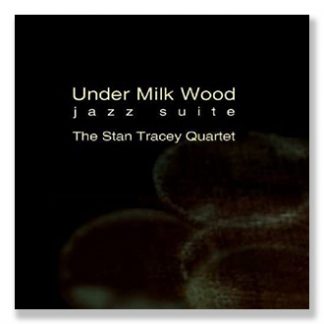Description
The tendency for jazz composers to take as their theme some existing work of art is comparatively new and fraught with perils, both for the composer and his audience. It must be a great temptation for the musician to cook up an amorphous mass of material, split it into sections and give each fragment a title which will link it with a well-known work of fiction or drama. It is an even greater temptation for the listener to examine the titles and then read into the music connotations which exist only in his own head. But when this kind of collaboration between the jazz musician and a writer he has never met, is tackled with sincerity, the result can be enlightening, not only to jazz-lovers but also to lovers of literature. Stan Tracey’s attempt to transpose into jazz the sensibilities of Dylan Thomas’s “Under Milk Wood” seems to me to be one of the most successful experiments yet achieved in this difficult genre.
Scepticism is dissolved the moment one hears the title-theme, which possesses the same kind of sinuous romantic beauty of much of Thomas’s use of language. Judging from the mood which this composition creates, Tracey was very much under the bewitching spell of “Under Milk Wood” when he wrote it, and in view of his complete success in gaining his effects, it is interesting to discover what his working methods were. The phrase which kept running through his head was Thomas’s “starless and bible black”. He played over to himself the dramatised recording of “Under Milk Wood”. Several characters and focalpoints in the action suggested musical patterns or moods to him. The next day he began to compose the themes which may be heard on this album. Like Thomas’s characters. the themes vary greatly in tempo, in mood, in dramatic depth.
The title song is a triumph, not only because it stands by itself as a beautifully conceived jazz ballad, but because it sets the scene for the rest of the writing and playing. Some of the other themes are impressionistic and highly subjective sketches of Thomas seen through the prism of jazz. Others seem to me to be more literal. Penpals, for instance, with its slightly humorous approach, seems to cry out for some of Thomas’s own lyrics to embellish the melody. So does I Lost My Step in Nanlucket. No Good Boyo is cast in the conventional 32 bar mould and moves at that comfortable medium tempo which so often brings out the very best in the relaxed soloist. One of the most impressive aspects of the album is the masterly interplay between Tracey’s piano and the tenor saxophone of Bobby Wellins. Wellins is one of the very few British jazzmen with originality, and the aspect of his style which comes across to so great an effect in the “Milk Wood” pieces is his restraint, his use of silence in the solo, his ability to create light and shade instead of endless rambling streams which so many modern musicians indulge in. His four-bar breaks in Cockle Row particularly show great wit and melodic flair. In the best of all possible worlds, which ours is not, each copy of this album would be distributed with a copy of Thomas’s text, which is the highest compliment one can pay to a musical interpretation of this kind. The listener who enjoys this record purely on a jazz level, will soon discover, when he turns to Thomas’s “Milk Wood” that a great deal of further enjoyment can be had by reading Thomas and then hearing the music again in the light of the written word. He will find that Tracey, Wellins, Clyne and Dougan have pulled off one of the most difficult tricks any artist can attempt, the expression of their own personality through the work of some other creator. It is rare indeed for good programme music to be good jazz too, but here is one example. Benny Green.
Personnel:
- Bobby Wellins – Saxophone
- Stan Tracey – Piano
- Jeff Clyne – Bass
- Jackie Dougan – Drums
Tracks:
- Cockle Row (06:50)
- Starless And Bible Black (03:45)
- I Lost My Step in Nantucket (03.45)
- No Good Boyo (05:00)
- Penpals (03.45)
- Llaregub (04:50)
- Under Milk Wood (05.55)
- A.M. Mayhem (06:50)
Recorded March, 1965
Reviews:
“”It is now 19 years since Stan Tracey first introduced his jazz suite Under Milk Wood. The record was an instant, if modest, success and one of the pieces on it, the haunting Starless and Bible Black remains probably the finest single recorded performance by a British jazz group. With the plaintive sound of Bobby Wellins tenor saxophone floating above the subdued piano chords, it evokes to perfection the atmosphere of a soft spring night… it was one of the most enjoyable concerts I have attended for ages… everyone writes suites these days… but none of them has lasted like this one…””
Dave Gelly
The Observer
“Stan himself is, quite literally, brilliant. His compositions all have that classic modern jazz feel: the heads are glaringly apparent and the solos obviously placed, but that’s what modern jazz should be about. Tracey has always been a progressive pianist with his self-created bounds and the rest of his band seem to share that ideology. Jazz for jazz lovers.”
Rhythm Magazine
“Stan Tracey’s 1965 recording of his “Jazz Suite inspired by Dylan Thomas” has attained the status of a classic disc – and rightly so. After more than 40 years, the album stands up as one of Stan’s finest. A British jazz masterpiece? How often can you suggest such a thing? But in this case the answer is undoubtedly “Yes””
Tony Augarde
Music Web International
